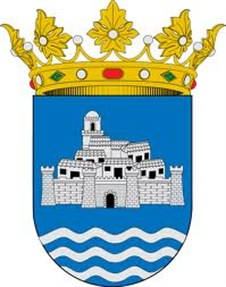Kingdom of Valencia
 The Kingdom of Valencia was founded in 1238, when King James I of Aragon decisively defeated the army of the Muslim kingdom and annexed the territory just released to the Crown of Aragon. In the same year of 1238 los Fueros de Valencia (Els Furs), the laws that would govern the kingdom for its entire existence, were promulgated. During the fifteenth century, a true Valencian siglo de oro of economic growth, mainly due to maritime trade with the non-Iberian possessions of the Crown of Aragon, was accompanied by a remarkable period for literature and the humanities. The same period saw the Taula de Canvis, an authentic precursor of a stock exchange in the kingdom. After the dynastic union of the crowns of Castile and Aragon through King Charles I (Emperor Charles V), the Kingdom of Valencia maintained its political independence, but gradually lost its economic prosperity. Valencian merchants were excluded from trade with the Castilian colonies in the Americas, while the expulsion of the Moriscos (1609-1614) deprived the kingdom of a large and especially productive part (nearly one-third of the total) of its population. During the War of Succession, Valencia sided with the Habsburg candidate, Archduke Charles, and was therefore punished by the man who later won the war, Philip V of Bourbon. With the Nueva Planta decrees, the old kingdoms of Aragon were incorporated into the Crown of Castile and Valencia lost its political independence and its Fueros.
The Kingdom of Valencia was founded in 1238, when King James I of Aragon decisively defeated the army of the Muslim kingdom and annexed the territory just released to the Crown of Aragon. In the same year of 1238 los Fueros de Valencia (Els Furs), the laws that would govern the kingdom for its entire existence, were promulgated. During the fifteenth century, a true Valencian siglo de oro of economic growth, mainly due to maritime trade with the non-Iberian possessions of the Crown of Aragon, was accompanied by a remarkable period for literature and the humanities. The same period saw the Taula de Canvis, an authentic precursor of a stock exchange in the kingdom. After the dynastic union of the crowns of Castile and Aragon through King Charles I (Emperor Charles V), the Kingdom of Valencia maintained its political independence, but gradually lost its economic prosperity. Valencian merchants were excluded from trade with the Castilian colonies in the Americas, while the expulsion of the Moriscos (1609-1614) deprived the kingdom of a large and especially productive part (nearly one-third of the total) of its population. During the War of Succession, Valencia sided with the Habsburg candidate, Archduke Charles, and was therefore punished by the man who later won the war, Philip V of Bourbon. With the Nueva Planta decrees, the old kingdoms of Aragon were incorporated into the Crown of Castile and Valencia lost its political independence and its Fueros.
